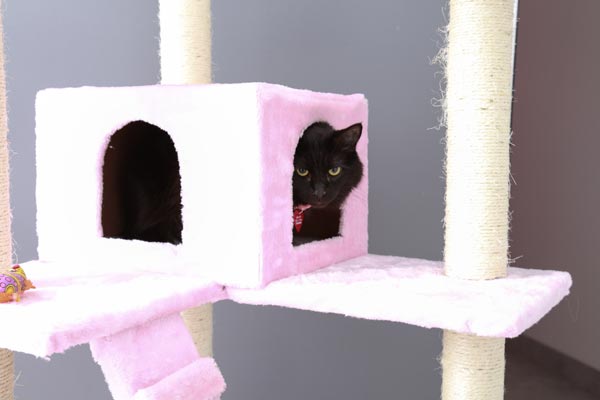If you plan on traveling soon, as a cat owner, you must find an appropriate host for your feline friend. You might want to take them with you, but most cats are not that eager to travel, especially if you are going on a long trip. Having the necessary arrangements for your cat is essential to their health and everyday needs. This is even truer if medical ailments follow your kitty. Either with a well or sick cat, you must have everything planned out accordingly ahead of your departure to ensure they will be well taken care of.

Kennels
To find a boarding kennel for your cat while you are away, the first place to look is your vet. They may offer you a deal since your cat is already a patient with them. You might want to consider leaving your feline with your vet or a veterinarian hospital if your cat has medical issues to ensure they will be given any medication correctly. Consider your cat’s stress level when going into a different environment. If they have a high degree of stress, your cat might need a kennel that is specifically for cats to reduce the potential stress.
Informing your veterinarian of your travel plans is important in the case of your cat’s needing emergency medical care. When the bill comes, they will already be aware that you will be footing it once you arrive back from your trip. Whether you leave them in a kennel or with a qualified caretaker, they need to know who and where your vet is so that your cat will be taken care of properly. Your vet will already be familiar with the underlying conditions if any, that your cat has and can quickly treat them.
Other pet owners, such as your friends and family, are great resources to finding a place for your cat to stay while you are gone. They can give you recommendations to great caretakers or kennels for your cat. No matter where they ultimately send you, you will need to take a tour of the place your cat will be spending their time. Look for the cleanliness of the facility overall, especially the area where your cat will be in. Make sure you do not smell any stench coming from any part of the establishment. This means that your cat will probably not be taken care of that well if they allow a strong smell to parade through the area because the smell is likely from feces or urine.
Your cat should not be roomed with dogs or be in close contact with any other animals. Check out the area that your cat will be left thoroughly. Discuss who will be caring for your cat and if other alternate people will be aiding in the care for your cat.
Ask how often they change the cat’s litter and if disinfectant is a part of the cleaning process once another cat leaves. You don’t want your cat getting sick, so this is very important to ask. Also, the cleanliness of the food and water bowl is key to your cat’s health. If these are not cleaned and disinfected, they can become very ill. Ask about the daily cleaning routines they do.
Your cat will have to be in a cage when you are gone. The cage should have a very secure lock so that they cannot escape. If they happen to find a way out, there should be security measures for such a scenario. Make sure the facility has these procedures in order.
Vaccinations and flea prevention should be a concern of yours already, but when your cat is staying at another residence, the importance heightens. You don’t want any other cat getting sick or catching fleas because of your negligence. Talk to the facilitator about any additional vaccines your cat needs to stay there and let them know of any flea prevention that your cat is currently medicated with.

When Your Cat Stays Home
Your preference might be to leave your cat at home. Cats are known for their independence, so they likely only need someone to do maintenance. They will need someone responsible for cleaning their litter box, give them fresh water, and maintain their food supply. You will want to set up a time to interview this person, who likely is a pet sitter. Set up days that they will come and care for your cat.
Depending on the age of your cat, you might also require someone to play and exercise with your cat. A pet sitter can provide these all in the comfort of your home. A grooming regimen, such as brushing, can be set up as well.
In the event of an emergency, make sure your pet sitter is aware of your veterinarian’s information. They should have the number and know the location if they need to take your cat to their office. They should have reliable transportation for transporting your feline when necessary.
Whether you choose to leave your cat with a boarding kennel or at home to be cared for by a pet sitter, you should carefully decide the best option. It is hard leaving your pet, and you don’t want to leave them with just anyone.
